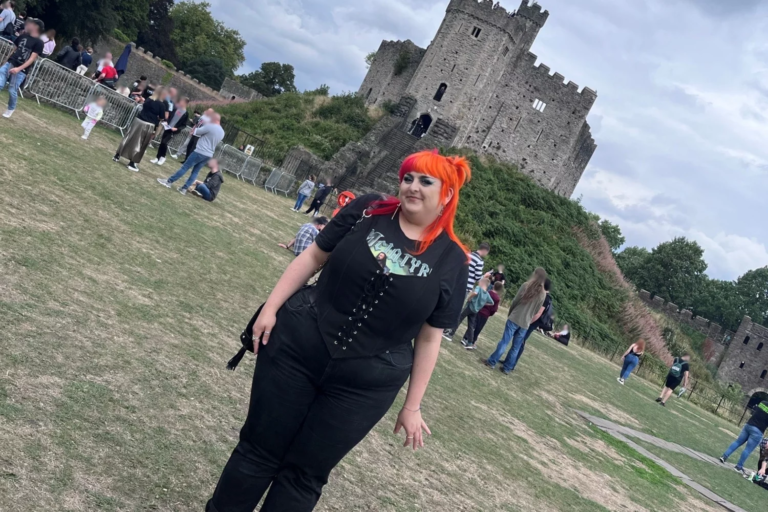Being a bisexual woman in a straight relationship isn’t exactly breaking news. I’m sure there are many people, like me, who had their bisexual awakening watching Paramore’s Hayley Williams and then fell in love with a man, seemingly ending their queer journey.
Before we begin, I should say that I am incredibly lucky to have fallen in love with a man who has gone out of his way to learn about LGBTQ+ life and culture and allows me to fly my flag proudly whenever I feel like it. However, sometimes I feel a bit out of or out of it when it comes to being bisexual.
Double erasure is a term I only learned about in recent years – it’s the tendency to ignore, remove, or explain away the elements of bisexuality in culture, media, or the news. In society at large, we like to group people through a binary lens. we can be straight, or we can be gay and therefore very often bisexuals are rejected. And when we are recognized it is often under the guise of biphobia…
“Ah, it’s just a phase”
“Bisexuals are just greedy”
“Aren’t they all a little bit?”
This means that because I am dating a man, I am no longer seen as bisexual.
This part of my identity is explained by the fact that my partner is cis-man and we live and love in a monogamous relationship. And to be honest, that perception is kind of crap!
I am 30 years old and have never come out to my parents. I’ve never been to a queer club night where I’ve felt overtly represented. I don’t feel like the crammed spaces are accessible to me and my partner. I feel conflicted inside.
Am I good enough to claim to be part of this community?
I don’t feel like society validates my queerness while I’m a woman dating a man.
But queer culture and identity is part of who I am – I still find women attractive, read books and watch movies about queer love and heartbreak, listen to Sapphic music and dance to songs by queer artists (if you’re reading this Chappell Roan, thank you); celebrating Pride and supporting the lives of queer people. I have the support of my partner and a small handful of friends who exist in a similar realm, yet I still feel like I have to fight to be seen as bisexual by the wider world.
My own relationship with bisexuality aside, it’s important to recognize that the consequences of double erasure aren’t just about feeling left out. It can lead to many different long-term mental health issues, such as depression, anxiety, and suicidal ideation. Research shows that bisexual people experience these health problems at higher rates than other people in the LGBTQ+ community And it’s no surprise when many of these individuals feel they must either hide this part of their identity or constantly defend it.
So what can we do to combat double erasure? Perhaps the best representation is the place to start. How many famous bisexuals can you name? How many real-world examples, or even fictional examples, can you think of that accurately and positively represent bisexual people? We need to see more positive representation of bisexual people online and in fictional media, and we need to start celebrating people who are bisexual, rather than dismissing or hiding it.
We can include bisexual identity in education. When we have conversations about sex and relationships, we should be talking about more than men and women having penetrative sex and getting married. Let’s talk about LGBTQ+ sex and love and show that the world we live in has so many unique people who have unique experiences that are fulfilling and different. Seeing this representation in education as the norm could change a young person’s life, letting them know who they are and who they love is valid and something to celebrate!
Let’s start seeing the world through a more inclusive lens and enjoy how different we all are.
Let’s not assume that everyone we meet is straight. Let’s assume that everyone we meet could identify in any way and approach them with kindness, respect and acceptance. Once we begin to do this, we open up the opportunity for more connection with each other and ultimately more joy.
I think this is about myself as well – meeting my identity with kindness and acceptance and not allowing anyone, including myself, to invalidate that.
Top tips for celebrating your identity:
- Find people who allow you to be you – the support of others makes all the difference, so find the people who stand up for your identity as much as you do.
- Keep learning – read books, watch TV and movies, listen to music or podcasts, go to talks and events that focus on bisexual voices in a positive way.
- Celebrate bisexual voices – hanging out with like-minded others helps us find community, and when we celebrate these people, we open the door for others to be proud of their identity.
- Wear the flag and speak up – taking on the double erasure challenge and showing your identity when you feel safe can change lives, set positive examples and make you feel great!
